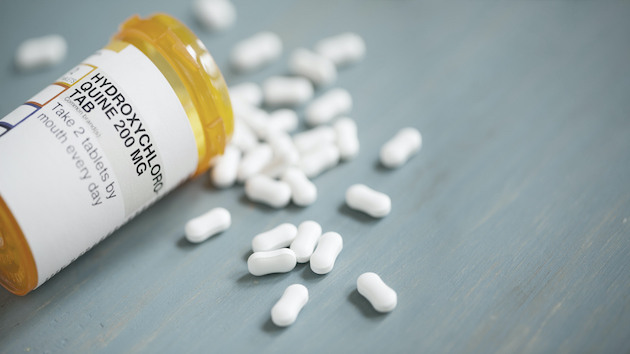
Liliboas/iStock
Liliboas/iStockBY: ERIN SCHUMAKER, ABC NEWS
(RIO DE JANEIRO) — In Brazil, the new epicenter of the world’s COVID-19 pandemic, hospitals are overflowing, health care workers are stretched beyond their limits and cemeteries operate through the night to keep up with demand.
“It’s super, super scary,” said Fabio Biolchini, an emergency coordinator at Doctors Without Borders in Brazil. Intensive care units in 20 of Brazil’s 27 states are above 100% occupancy, Biolchini explained, and thousands are waiting for an open bed in intensive care units.
Second only to the United States, Brazil has reported more than 12.8 million infections and 325,284 deaths from the virus as of Friday, according to data from Johns Hopkins University.
In the face of that devastation, the Brazilian government’s response has been lackluster at best and downright dangerous at worst, experts say.
President Jair Bolsonaro, who has repeatedly downplayed COVID-19, dismissing it as a “little flu” early in the pandemic, took a new approach during a televised national address March 23. This time, Bolsonaro attributed Brazil’s devastation to the new P.1 virus variant, which was first identified in January and is now the dominant strain in Manaus, the Amazon’s biggest city. The P.1 variant is considered to be a “variant of concern” because evidence suggests that it is highly transmissible and has the potential to reinfect people who have recovered from infections caused by other variants.
But Dr. Mauricio Nogueira, a professor at São Jose do Rio Preto School of Medicine in Brazil, who has studied viral variants and how they emerge for more than two decades, questioned whether focusing solely on the new variant downplayed government missteps and widespread misinformation about COVID-19 treatments that have contributed to the current crisis.
“It’s very convenient for the government to say that the variant is causing the problem, because it takes our responsibility out of the equation,” Nogueira said.
He preferred to turn the question around. “Are they the cause or the consequence?” he asked of the variants.
“We’re having these variants because we’re having indiscriminate circulation of the virus in the country,” he concluded.
Before the variants were identified, misinformation about preventing and treating COVID-19 was being spread from person to person, including at the highest levels of government.
“People in Brazil are still denying science,” Biolchini said. “We’re talking about hydroxychloroquine and drugs that supposedly help you avoid COVID. This is clearly not what the science says.”
Cheap, easy, ineffective, dangerous: The hydroxychloroquine story
Like former President Donald Trump in the United States, Bolsonaro championed the malaria drug hydroxychloroquine in Brazil both as a treatment for COVID-19 and as a preventative medication.
“If I had taken hydroxychloroquine as a preventative measure, I would still be working,” Bolsonaro said after he contracted COVID-19 in July.
Since then, a World Health Organization expert panel has released strong recommendations against using hydroxychloroquine as preventative medicine, writing in the British Medical Journal in March that hydroxychloroquine had no meaningful effect on death, hospitalization or laboratory-confirmed COVID-19 infections.
Instead, the drug has the potential to harm people who take it to prevent COVID-19. Hydroxychloroquine “probably increases the risk of adverse effects,” the panel found.
While there aren’t official statistics on how many people in Brazil are taking hydroxychloroquine and other unproven medications to prevent COVID-19, Dr. Bruno Caramelli, a cardiologist and professor at the University of São Paulo, said it’s common among his patients to have taken, or still be taking, drugs like hydroxychloroquine for COVID-19.
This week, a patient of Caramelli’s who owns a cattle farm in the western part of São Paulo state, called him panicked. His wife, family and his employees on the farm had all contracted COVID-19 and were taking hydroxychloroquine and ivermectin, an anti-parasite drug, for treatment. “I’m breathless,” the patient told him. With local hospitals overrun, Caramelli convinced the patient and his wife to stop taking hydroxychloroquine and get an ambulance to São Paulo.
“They listened to me and they stopped,” Caramelli said. The same could not be said of the farm employees, who Caramelli did not counsel directly, and were still taking hydroxychloroquine under the advice of local physicians.
“Every drug has a side effect,” said Nogueira, who was involved in an early clinical trial of chloroquine, a malaria drug similar to hydroxychloroquine, which found that drug showed no benefit as a COVID-19 treatment. In addition to being ineffective, hydroxychloroquine and chloroquine, especially when combined with other drugs, like azithromycin, can be toxic to the heart, Nogueira explained. Ivermectin is a safe drug for treating parasites, according to Nogueira, but Brazilians using the drug for COVID-19 without a prescription is already having consequences.
“We are seeing people getting liver disease,” Nogueira said. “It’s dangerous.”
‘A fake feeling of safety’
Unproven, quick-fix treatments aren’t just dangerous, they’re also a distraction from measures that do stop the spread of the virus, like social distancing and masks.
“It gives the people a fake feeling of safety,” Nogueira said of ineffective preventative treatments. Vaccination, the one preventative treatment that has been shown to be effective against COVID-19, isn’t widespread in Brazil yet. Just 7% of Brazil’s population had received one dose of the COVID-19 vaccine as of April 1, according to Our World in Data.
Quick fixes like hydroxychloroquine take “the need for isolation, lockdown and real treatment out of the focus,” Caramelli said. “That’s why we’re seeing an escalating number of deaths.” On Thursday, Brazil reported more than 3,000 deaths in a single day from the virus, according to data from JHU. During this current wave, that number first crossed 2,000 on March 10 and 1,000 on Jan. 4.
Still, Caramelli understands the appeal of a miracle. “You’re very worried about dying and you have something that is presented as hope,” he said.
In March, Caramelli started a Change.org petition asking the Federal Counsel of Medicine, Brazil’s medical regulatory agency, to officially come out against what’s known colloquially as a “COVID kit,” a COVID treatment plan of unproven dtugs like chloroquine, hydroxychloroquine and invermectin. If the petition, which now has more than 18,800 signatures, is officially taken up by the CFM, doctors who continue to prescribe the unproven drugs for COVID-19 could be suspended or punished.
For now, the mismatch between people’s belief in miracle cures and overflowing Brazilian hospitals is frustrating for doctors and nurses working on the front lines, according to Biolchini. When health care workers leave hospitals and see full restaurants or people walking around like nothing’s going on, it’s isolating, he explained.
“The doctors and nurses, they have the impression that they are the only ones fighting this battle,” Biolchini said.
Copyright © 2021, ABC Audio. All rights reserved.

